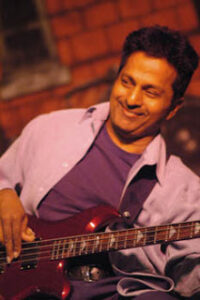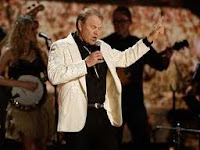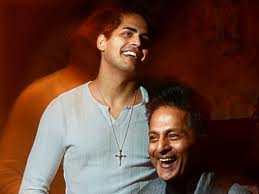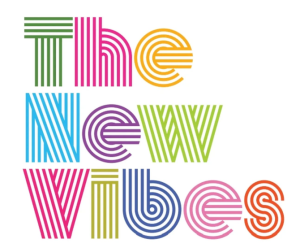Interview With Prakash John, part 2
This is part two of two parts. [Part one is here.] I spoke with bassist and Rock and Roll Hall of Fame member Prakash John at Ancaster’s Coach and Lantern Blues Studio event.
John’s son Jordan was recently signed by Verve Records for an extensive recording contract. Prakash spoke candidly about a special meeting with David Foster that secured the deal, and the lifetime of preparation and reputation building for both father and son that enabled it to happen.
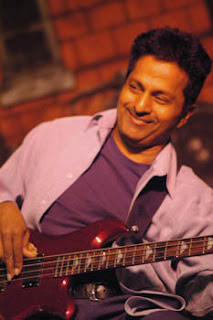 |
| Prakash John |
Family Teachers and Musicians
My mother taught handicapped children for about twenty years. There’s lots of teachers in my family.
From my mother and father. My grandfather was the choir director at the Basil Mission, a big German (Austrian is what they called it back then) mission. There was lots of church music on my mother’s side, which I thought was so corny and hokey. But it gave me an appreciation of what was such grand music. I had to sing in the school choir which was highly disciplined, like singing at St. Pauls. None of this “singing out of tune is cute.” You had to be on the boxing team, the soccer team, excel in scripture and you had to sing. I remember singing The Magnificat as a twelve year old, and having to endure whole thing, sitting there properly. Zuben Mheta came out of that era.
Leading Bands, Hiring Musicians
It’s maddening because they have such great talent. I need their work, I want their work, when I’m running my band The Lincolns. You’ve had an hour break. I call you to the stage, and now you’re going to the washroom?
Greg Critchley
gregcritchley.com
From Beamsville! Excellent. I used to always call him Chops. He was always concerned about his chops when he came out of Humber. I had to get a new drummer. Greg was one of the recommended ones. I came to hear him play. He’s a Humber grad. You know, they think they know R & B but they don’t, but he had a really nice way of hitting the snare, which I like. He’s got time. He’s got that really happy smile. But he’s got this stupid, fuzzy little goatee on. So I said, here’s the charts, we’re gonna practice with you. Nobody else wanted to use him – these guys who had never led a band.
You’ve got to be able to pick them. This was the guy I thought I could mold, etc. So I told him, There’s one thing you’re gonna have to do: you’re going to have to shave off that facial hair. Either have a beard or goatee or not. And I really liked him right away, but he says, “I’ll have to think about that. I’ll be here tomorrow.” He showed up the next day with it shaved off. Great guy; great drummer. I called Greg when we did the Gretsky wedding. This was a serious gig, so I called Chops. I’ll have to call him. Another band Greg played in called Regatta had a bass player named Matt Gerrard, who is also working in L.A. now.
On Older Musicians in the Industry
I think symphony musicians. It’s hard to maintain your dignity as a musician; your human dignity, never mind the musical dignity. And they have to say things like, I’m a musician I’m not really a performer. And to a large extent that’s true. That’s what you are. That’s the one thing they can’t steal from you. They’ll try to steal everything else. They’ll try to take your money, your job, everything. In the end you just have that last thing: I’m a musician, and I know what I do, and whether it’s an excuse or not, say I’m comfortable with what I do.
I remember when I was twenty six playing with Lou Reed and Alice Cooper and the Parliament I had to work really hard, performing. I’d be thinking, I hope this set is over soon! When you start a bass pattern; you’d better hang for for dear life for five to seven minutes.
And such a tremendous guitar player. Awesome. When he had that crazy TV show of his, he was such a heavy player. Jordan considers Glenn Campbell one of the top guys. I say, “You think your guys are so hot? Here, come and look at my guys.” And then when you go to Nashville you say, Oh dear! I’m more careful with what I choose to play now. I’ll say, Jordan I don’t want to play that tune. I’ll call a couple of ace bass players in New York. I don’t do tunes I’m not good at.
Managing Jordan John As He Signs With Verve
He’s been signed to Verve Records, a very prestigious name, by David Foster. He’s got a five album deal and a very healthy budget. Probably the biggest contract handed out in the last decade for a starting artist. And a Canadian at that. In relative terms, this is like a billion dollar deal. I don’t want to sound arrogant. But this is not an extra two thousand dollars and a bag of potato chips to snack on when you’re on the road!
So he’s got a great opportunity. David [Foster] has asked me to continue to manage and play with Jordan. I said I’ll do it to a point. In the contract negotiations we tried to carve out some terms to save the musician in case the wheels come off. Wow, great, there’s a quarter million dollars to record. But what if things change? You get shelved. And that can happen at any time. So, if that happens, we’re building in some protection for him. The musician needs to be able to continue in their career, independent of the clutches of the record company.
Not just facetious. Malicious. I expect people telling Jordan, “You’ve got to get away from your dad.” Some of that is true. To a large extent it’s true. I didn’t want to be like a hockey dad. But I realized that if I didn’t help him, then nobody was going to help him. I looked around. I can keep up. I can’t give him loads of cash; I don’t have that. But I can give him an equal amount in connections and knowledge and preparation.
You’ve got to have preparation for any discipline. And I insisted that he live a very healthy, athletic, clean life. No drugs and alcohol and that kind of stuff. And all of that paid off for him when he was sitting up in the ivory tower. I only took him to one meeting in his life and that was the one meeting that got him the deal, right? With David Foster who is the top producer in the biggest company in the world, Universal. We’re up there in this fancy place, very powerful, and these people are sitting there. It’s just Jordan on an acoustic guitar. That’s it. No band or nothing. We’re not playing any of his demos; I refused to do that. David had said, “I really want to work with you. You’ve got an incredible depth, knowledge and ability.” And then Foster said, “Here are the important questions. Do you have a girlfriend?”
Jordan John
Photo: Bruce M. Walker
I had prepared Jordan for this. I had always told him, you can’t have these permanent relationships if you want to do this. So he said no to all the questions: do have a girlfriend? do you drink? do you smoke cigarettes? are you a druggie? do you have any body piercings? do you have any tattoos? do you train? These were serious questions. Foster’s a square-pants guy like myself.
And then he turns to me and goes, “Yeah I know. Jordan, normally I wouldn’t believe half of what you say, but there’s your square-pants dad sitting over there, and I’ve known him for years.”
All those things were assets to him, just like all that British boys’ schooling, the violin playing and the piano that I didn’t want to do, the singing in the choir. When I came to Canada and discovered R & B, and – What is that thing with the four strings? I like the sound of that! It all really helps.
For all of us, learning how to learn is important. Even though I hated school when I was a guy (hey, I just couldn’t deal with it. It was just torment.) But I encouraged Jordan to get through high school. I said, you’ve just got to learn how to learn, because when you want to learn something, you’ll do it.
– GB August 12, 2012

